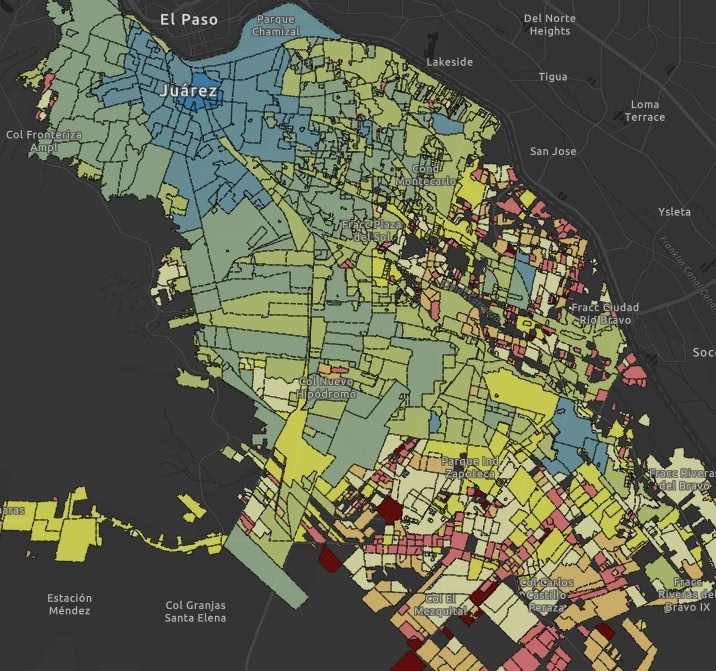Table of Contents
- Introduction
- 1)Principle of Public Spending
- Practical Case
- 2)Principle of Tax Equity
- Practical Case
- 3)Principle of Tax Proportionality
- Practical Case
- 4)Principle of Tax Legality
- Practical Case
- 5)Principle of Tax Generality
- Practical Case
Introduction
Among the few constitutional protections the taxpayer has, we have the so-called constitutional tax principles in article 31, section IV[1] of the United Mexican States Political Constitution. Unfortunately, the Supreme Court of Justice of the Nation has refused to recognize them as genuine human rights in favor of the taxpayer, as they are not contemplated in the ‘dogmatic’ part of our constitution. Notwithstanding the above, their role in the development of tax legislation is evident, and for tax attorneys, such principles constitute the bedrock in the defense of their clients.
Under that framework, I will briefly define each constitutional tax principle to analyze later specific cases resolved by the Supreme Court of Justice of the Nation where they were violated or their transgression was rejected. The above is reasonable because I consider the best way to learn a concept through its practice. Also, this blog is not the ideal medium to address such extensive topics full of exceptions since it is an instrument for sharing a notion of legal issues of general interest.
In this sense, from article 31, section IV of our constitution, the principles of 1) public spending, 2) equity, 3) proportionality, 4) legality, and 5) tax generality emerge. These are principles that, in theory, lawmakers must meet while enacting taxes. When they don’t do so, tax attorneys predominantly challenge the taxes’ vices through indirect Amparo proceedings, which is one of the most complex legal reliefs that Mexican attorneys may draft. This allows the taxpayer to save thousands and even millions of pesos. Therefore, the federal government’s judicial branch is too picky regarding the unconstitutionality of tax legislation.
With some sadness, I must admit that courts dismiss 90% of the alleged violations of constitutional tax principles. This is not because lawmakers are neat while enacting taxes but because few tax attorneys may combine economic, accounting, and legal knowledge to defend the taxpayer. Besides, the origin of a violation of constitutional tax principles could hinder state collection and complicate the satisfaction of public needs. For this reason, it is common to find judicial criteria from our highest courts establishing that such a new tax does not violate or transgress tax principles.
1) Principle of Public Spending
This principle implies that the income contributed by the taxpayer must be used for their benefit through the State providing public services for their security and adequate development. Also, the State cannot use said income for expenditures unrelated to public affairs, supposedly.
The reality is that in the case of tax legislation, it is enough for lawmakers to comply with this principle to mention that the tax shall serve to contribute to the public spending to be considered to satisfy such principle. The last is without the lawmakers having to be required to specify for what service the money collected shall be used. Therefore, this principle is more of a scholarly tenet without practical violation. Hence, until today, I’ve never known a case where a court declared a tax unconstitutional for violating this principle.
Practical Case
In the Amparo Proceeding’s review 888/2018 resolved by the Second Chamber of the Mexican Supreme Court of Justice, a commercial company whose corporate purpose deals with the production and exploitation, purchase, sale, marketing, and distribution of beer, as well as soft drinks and bottled water—carbonated or not—and the manufacture and marketing of ice; promoted an Indirect Amparo Proceeding—which is a constitutional lawsuit— against two general regulations issued by the lawmakers of the state of Zacates that considered unconstitutional. Regulations where ecological taxes were created.
The challenged taxes were the following: 1) tax for the emission of pollutants to the soil, subsoil, and water; 2) tax for environmental remediation in the extraction of materials; 3) tax on the emission of gases into the atmosphere and 4) tax on deposit or storage of waste.
Initially, the district court that attended the indirect amparo proceeding granted the protection of the federal justice for, supposedly, the State of Zacatecas having invaded the levy power of the Federation with the creation of the ecological taxes matter of the lawsuit without studying the merits of the case. However, the Legislature of the State of Zacatecas and the governor of that federal entity both filed a legal remedy called Amparo Proceeding’s Review. Eventually, the Mexican Supreme Court of Justice vacated that protection and resolved the case on merits.
In this context, regarding the principle of public spending, the complainant stated that the challenged taxes were created with a simple temporary collection desire to clean up the federal entity’s financial bankruptcy and not because it cared about protecting a healthy environment. Also, it was obvious that the income obtained through these taxes would not be allocated exclusively to the protection of the human right to the environment but to general public spending. Therefore, the challenged taxes violated the motivation for which they were enacted.
Also, the complainant argued his conclusion was derived from the debate and statement of reasons for enacting the challenging taxes, where the lawmakers of the State of Zacatecas accepted the financial adversities that the state was going through and that for this reason, the legislature had chosen to implement mechanisms that would increase the collection of the state treasury. Moreover, it had been established that the money collected would be used for the state’s environment and to clean up its finances.
As a consequence of the above, the complainant argued that the principle of public spending was violated with the enactment of such taxes. Likewise, if these taxes were special because they had been created to protect the environment, naturally, the amount collected should be allocated to public spending in that area and not a general one.
After studying these arguments, the Mexican Supreme Court of Justice judged them invalid in part and groundless in other parts since, as the court reasoned, the creation of the challenged taxes did not have as their primary purpose tax collection but rather to pursue a public policy goal consisting of guaranteeing the right to a healthy environment by inhibiting those activities among individuals that could violate it through the imposition of taxes, being secondary that the state treasury be strengthened for these tax purposes.
Furthermore, the Supreme Court highlighted that article 31, section IV of our constitution did not imply any obligation towards the lawmakers to label the amount collected from taxes that they imposed in accordance with the reasons stated they stated in the process of tax enactment. This would restrict their legislative freedom and, at the same time, the power of the Executive Branch to exercise public spending according to its convenience and public policies.
Also, the concept of public spending is only one, and taxes, despite having been enacted to satisfy certain goals, could not be exclusively subject to them due to the number of obligations the State had towards its inhabitants and the benefits that had to be provided to them abstractly.
2) Principle of Tax Equity
This principle states that tax laws must grant the same treatment to all taxpayers in the same economic situation without making distinctions regarding rates or tariffs, such as hypotheses of tax accrual, taxable income, allowed deductions, different payment terms, etc.
Practical Case
In the Amparo Proceeding’s Review 1062/2007, which the Mexican Supreme Court resolved, as a background, a taxpayer requested the balance refund in his favor under the Mexican tax authority (Service Tax Administration), who eventually denied it. For that reason, the taxpayer filed a Contentious Administrative Trial[2] before the current Federal Court of Administrative Justice to force it to do so. After completing the required procedures, the federal court ordered the tax authority to return the balance in favor.
In compliance with the ruling issued by the tax court, the tax authority returned the balance in favor of the updated taxpayer. However, the taxpayer considered it partial compliance because the amount returned to him did not include the interest payment. This was so because, according to article 22 in force at that time of the Federal Tax Code, it was stipulated that the payment of interest was only applicable to the figure of payment of the undue amount but not to the return of balance in favor.
Dissatisfied with this legislative distinction, the taxpayer filed an Indirect Amparo Proceeding before a district judge who, given the evident violation of the principle of tax equity, decided to grant federal protection to the complainant. Dissatisfied with the judgment issued by the district court, the Mexican president and other tax authorities filed an Indirect Amparo Proceeding’s Review, which the Second Chamber of the Mexican Supreme Court of Justice studied.
In summary, in the Indirecto Amparo Proceeding’s Review, the tax authorities argued that the treatment of taxpayers who were placed in the cases of payment of the undue amount and return of balance in favor were unequal because they were different hypotheses and that, therefore, they did not have to have the same consequences.
Thus, on the one hand, they explained that the payment of the undue amount was updated when the taxpayer, by mistake (by fact or law), made the payment of an amount that did not correspond to him because he had no obligation to do so or when he paid too much due to an incorrect interpretation of tax regulations.
On the contrary, the tax authorities argued, the balance in favor of taxpayers was applicable when at the end of the corresponding tax season, while submitting the annual return, and after having made the corresponding deductions, the taxpayer was left with a tax payable that was lower than the amount of all the provisional payments that he made during the tax year. However, those payments made did not have the characteristic of deriving from a factual or legal error but precisely the opposite, the balance in favor derived from the correct application of the tax law.
At the time of studying the Indirect Amparo Proceeding’s Review, the Second Chamber of the Mexican Supreme Court of Justice declared the arguments and issues asserted by the tax authorities as invalid under the argument that the principle of tax equity did not imply that two taxpayers must be on absolute equality so that they receive the same tax consequences, but under same facts-alike, they should apply identical legal consequences.
On the other hand, our Supreme Court stated it was true that the mechanics of the two figures were different but that both became applicable from the moment in which the tax obligation was fulfilled in excess, which put the taxpayers who made an undue payment and a positive balance in his favor on a level of equality. Therefore, it was reasonable to conclude that lawmakers must have been obliged to grant them equitable treatment in the tax law.
Finally, the Second Chamber of the Mexican Supreme Court of Justice emphasized that contrary to what the tax authorities argued, both legal figures had a similar characteristic consisting of the fact that in both of them, the treasury was withholding an amount that did not correspond to it and that, in the face of such withholding, taxpayers had a right to be compensated for that damage in the most faithful way possible, namely, by including its updating and legal interests.
3) Principle of Tax Proportionality
This principle states that taxpayers must contribute to public expenses based on their authentic contributory capacity, contributing a fair and adequate portion of their income, profits, or returns. This principle implies that people who earn higher incomes pay higher taxes than those with medium and low incomes, which is mainly satisfied with establishing progressive rates. Finally, this principle demands that tax legislation design mechanisms to measure the proper level of taxpayer wealth.
Practical Case
In the Indirect Amparo Proceeding’s Review 1041/2008, which the Mexican Supreme Court of Justice resolved, a company sought federal protection against various reforms and additions to the Financial Code of the Federal District regarding property taxes, pointing out that said acts violated the constitutional principles of proportionality and tax equity because the mechanism for determining the tax base, did not consider the taxpayer’s true capacity, but rather a fictitious value arbitrarily required by the lawmakers.
In that case, the mechanism for determining the tax base of the property tax subject to analysis stipulated that the owners or possessors of properties that were in the process of construction must determine the cadastral value considering 50% of the total registered construction surface in the construction license or, in other words, the final work. After that, calculate the amount to be paid in accordance with the unitary value tables (if you want to understand better how property taxes work in Mexico, see my previous entry where I explained ‘Local and Municipal Taxes in Chihuahua) and pay the tax bimonthly.
Regarding the mechanism in dispute, the complainant asserted that the fifty percent as fixed tax base was a fiction that did not consider different hypotheses that could occur in the construction of properties, such as the actual progress of the work, which could be lower or even higher, as well as the stages of excavation or foundations, which could take a long time. The complainant argued that in the interim, the taxpayer would have to pay a property tax as if the work was already fifty percent complete, which may not be accurate.
At first, the district court denied these arguments because the judge concluded that the procedure for determining the taxable base served to simplify the calculation of the property tax and that, in any case, the law contemplated mechanisms to inform the authority of the delay or stoppage of construction works and, thereby, modify the tax base again.
Dissatisfied with the above, the complainant filed a federal legal remedy called ‘review’ which was studied by the Second Chamber of the Mexican Supreme Court of Justice, which, in essence, agreed with the complainant because the challenged regulations clearly violated the principle of tax proportionality since the mechanism for determining the tax base of the property tax did not reflect the authentic taxable capacity, due to the fact that this had to be measured based on the value of the real estate and not on legal presumptions.
Finally, as our highest court specified, the challenged mechanism could not be sustained under the excuse of simplifying or making it easier for the authority to determine the taxable base of the tax, inasmuch as the principle of proportionality is a guarantee enforceable against the tax authority. As a result of the above, the first instance ruling was modified, and the complainant was granted the protection of federal justice.
4) Principle of Tax Legality
This principle is based on the Legislative Branch not conceding the tax authorities room to carry out arbitrary or capricious acts but rather generating certainty for the taxpayers by establishing the elements of the tax in the law and clarifying how it must quantify the tax burdens that correspond to it, regardless of whether, in the case of complex taxes, the same lawmaker can make express referrals to various regulations.
Practical Case
In the Indirect Amparo Proceeding’s Review 1061/2008, resolved by the Mexican Supreme Court of Justice, certain companies raised the unconstitutionality of two legislative decrees that created, added, and reformed the Financial Code of the Federal District. To justify the unconstitutionality, complainants submitted different issues and arguments linked to the violation of the principles of proportionality, equity, and tax legality.
The district court, who resolved the case in the first instance, dismissed it in part and denied the federal protection to the complainants without studying the case on merits because it considered it unnecessary due to the ineffectiveness of the main arguments.
Against such determination, the complainants filed a review, which was studied by the Second Chamber of the Mexican Supreme Court of Justice, which decided to modify the challenged judgment since most of the determinations issued by the district judge were confirmed. However, one of the arguments related to the violation of the principle of tax legality, which the district judge failed to study, was declared founded. Consequently, our highest court decided to grant the complainants the federal protection of justice.
Regarding the argument in discussion, the complainants argued that the Legislative Assembly of the Federal District violated the principle of tax legality because it failed to indicate what the concept of ‘value’ was in the decree. The concept of value that taxpayers had to consider when choosing the furniture types in their properties. Namely, since imprecise definitions were stipulated in the norm, this transcended the mechanics of determining the taxable base of the property tax.
In this manner, the complainants emphasized the fact that a taxpayer has to determine the taxable base of the property tax based on unit values of land, determining the type of construction of their property, for which they had to place it in the characteristics that corresponded, without the law establishing how it should be carried out, or to what value of the furniture these articles refer. Therefore, it contradicted the principle of tax legality since there was ambiguity about the term value, which could refer to the value at the time of purchasing the good; the interval between the moment of purchase and the current moment; the present value taking into consideration a certain distribution store; the manufacturer value, etc.
Similarly, complainants stressed that it is through a formal and material legislative system that the object of the tax, the way of determining the taxable base, the applicable rate, and the time of payment should be specified with accuracy and clarity since only in that way would certainty be generated for the taxpayer about the basic elements of tax. Moreover, it would help to prevent arbitrary actions from the tax authorities.
Lastly, the complainants argued that in the specific case, due to the ambiguity of a word that must be taken into account for the determination of the taxable base of the property tax, it left the complainants in a state of uncertainty because they did not know how to make the accurate classification suitable to their reality.
At the time of studying the arguments mentioned, the Second Chamber of the Mexican Supreme Court of Justice declared them founded because, as was true, the word ‘value’ could have various meanings in tax legislation such as base, cadastral, commercial (fair market value), accounting, comparative or market, cultural, capitalization, cash, disposal, freehold lessor, indemnity, exchange, investment, forced liquidation, orderly liquidation, the market for continued use, opportunity, forced realization, orderly realization, recovery, replacement, auction, replacement, insurable replacement, reproduction, rescue, salvage, on books, in use, special, speculative, extrinsic, tax, intangible, intrinsic, fair, maximum, minimum, net replacement, potential, net present value (NPV), present, residual, etc.
Finally, the court stated that while it was true that it was not the lawmakers’ obligation to define in detail all the words used in tax legislation, it is also true that those that had an impact on the establishment of the taxable base of the tax should be known with certainty by the taxpayer. Thereby, due to the impossibility of attributing an exact meaning based on the context in which the word ‘value’ was used, uncertainty was generated for the complainants and, therefore, the tax authority was granted a margin of arbitrariness to apply the challenged provision without subjection to a criterion defined by the legislator that could transcend the payment of the tax.
5) Principle of Tax Generality
This principle lies in the fact that since the imposition of taxes must be done through laws, these must be mandatory for all people who fall under the legal hypotheses that the law establishes, whose characteristics must be generality, abstraction, and permanency. Thus, the principle under study would be violated if a tax rule was aimed exclusively at specific people, and after its application against them, the rule ceased to have effects. Finally, as of the date of this entry, I’m unaware of any case where this principle has been violated.
Practical Case
In the Indirect Amparo Proceeding’s Review 735/2011, resolved by the Mexican Supreme Court of Justice, a company whose corporate purpose was, among others, the provision of active recreation services through any legal instrument, directly or with the contracting of third parties, through the installation, manufacturing, operation, exploitation, promotion, sale, leasing, exchange and acquisition by any commercial and/or civil title, of video game machines demanded a decree that reformed and added various provisions of the Special Tax Law on Production and Services.
Regarding the principle of tax generality, the complainant argued that article 20 of the Law on Special Tax on Production and Services was a private norm that violated such principle, since it imposed an obligation directed explicitly at a number or group of certain people who carried out games with bets and raffles in fixed establishments, excluding those taxpayers who carry out similar activities, resulting in differential treatment that granted privileges and was arbitrary.
The obligation derived from article 20 consisted of providing information permanently, online, and in real-time of the operations and records of the company in the central gambling systems, as well as the cash control through registration systems calculation that has a systematic link with the Tax Administration Service.
Initially, the district court that studied the Indirect Amparo Proceeding dismissed the claimed act consisting of the alleged issue emanating from article 20 of the cited law since that provision, as he argued, did not cause the complainant personal and direct harm for not having come into force due to the vacatio legis. Hence, the legal provision did not apply to the specific case, and it was determined that it lacked standing to challenge it at that time.
Dissatisfied with such judgment, the complainant challenged that determination before the Collegiate Circuit Court that studied the matter, which lifted that dismissal but reserved the study on merits of the substantive arguments of that section to the jurisdiction of the Mexican Supreme Court of Justice.
While studying the complainant’s arguments, the First Chamber of the Mexican Supreme Court of Justice labeled them as invalid due to the fact that, in its opinion, it was enough for the provisions of a legal system to be valid indefinitely and to be applied to all people who fall within the hypothesis provided. Therefore, the law satisfies the attributes mentioned above of generality, abstraction, and impersonality.
Under this framework, our highest court also reasoned that the formal obligation emanating from article 20 of the controversial law referred to a control system that allowed the tax authority to obtain information online and in real-time about its operations and records, as well as cash control so that the authority could directly and immediately obtain information related to their income.
Finally, from this formal obligation of tax control, there wasn’t a hint that one or several people were individually mentioned, as the complainant argued, but instead referred in general to those taxpayers who were placed in the legal hypothesis provided by the law. Hence, there was no violation of the principle of tax generality.
By Omar Gómez
Mexican Tax and Administrative Attorney
Partner at beLegal abogados sociedad civil
Abogados en Ciudad Juárez, Chihuahua, México
Contact me at: hola@ogomezabogado.com
Visit www.belegalabogados.mx
[1] Article 31.- Mexicans shall have the following duties:
[…]
IV.- Contribute to public expenses, both of the Federation, the States, the City of Mexico, and the Municipality in which they reside, in the proportional and equitable manner provided by the laws.
[2] Which is basically a legal relief followed in the form of a trial before courts specialized in administrative and tax matters.





